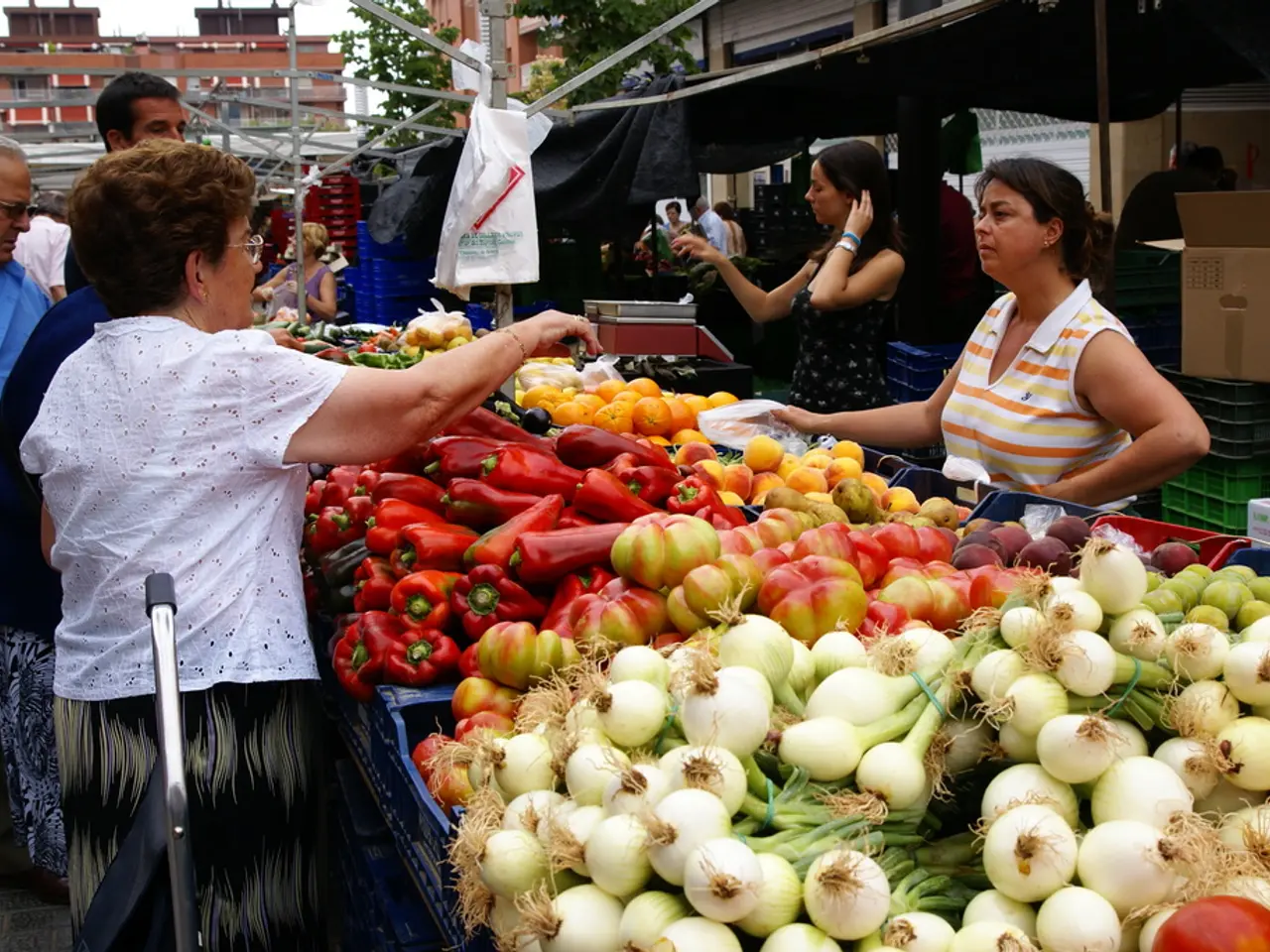Recycled Plastics Are More Harmful Than New: Exposing the Myth of Plastic Recycling
===================================================================
In a revealing article published on NaturalNews.com, the claim that plastic recycling is an "actual scam" is made, as the "reduce, reuse, recycle" mantra has fallen short of expectations. The article, which acknowledges the support of "truth warriors," cites multiple sources to delve into the safety and approval of recycled plastics used in food packaging.
The Food and Drug Administration (FDA) plays a crucial role in ensuring the safety of recycled plastics. The agency mandates that these materials must meet specific purity thresholds and be free from harmful chemical residues. The FDA evaluates recycling processes to confirm effective removal of contaminants before approving the materials for food contact use.
Potential chemical contamination arises from residues and substances absorbed during prior use or from mixing with non-food-grade plastics. Advanced cleaning and decontamination methods, such as those developed in current research efforts, are critical to safely reusing recycled plastics, especially polyolefins like HDPE and polypropylene.
Recycled plastics like rPET (recycled polyethylene terephthalate) and rHDPE (recycled high-density polyethylene) can be food-safe when certified by regulatory bodies and processed according to their standards. However, residues found upon analysis must remain below acceptable safety limits.
Effective sorting using technologies like near-infrared spectroscopy and multi-sensor systems are used to ensure material purity and compliance with food safety standards. Achieving food-grade recycled plastics is technically demanding and costly due to the need for high-quality input materials, sophisticated sorting and washing, and regulatory approval, which together limit supply despite increasing demand.
Despite these efforts, research on recycled plastics is still limited, and some studies indicate that recycled plastic can be more contaminated than new ones. The FDA's approval process for recycled plastics is voluntary and relies on manufacturer's test data for approval, which can lead to self-regulation and potential oversights.
The article also addresses the issue of confusion surrounding the Resin Identification Codes (RICs) and the recycling symbol, leading to contamination of recycling streams, increased costs, and more plastic ending up in incinerators or landfills.
The FDA has approved over 340 applications for food packaging materials made from recycled plastics since 1990. However, the article does not explicitly state new facts about the toxicity of recycled plastics compared to new ones, as it is a reiteration of a previously mentioned fact.
The article encourages readers to submit comments and supports independent media sites. It also contains a request for donations to help cover costs. Studies suggest that recycled plastics can contain harmful chemicals like benzene, BPA, and phthalates, posing potential risks to consumers.
In summary, while the FDA's efforts to ensure the safety of recycled plastics used in food packaging are commendable, the process still faces challenges and controversies. Ongoing technological innovations support these safety measures, helping to expand the availability of food-grade recycled plastics while protecting public health. However, it is crucial to address the issues of contamination, self-regulation, and consumer education to ensure a sustainable future.
[1] FDA.gov (various articles on FDA's regulations for recycled plastics in food packaging) [2] EFSA.europa.eu (various articles on EFSA's guidelines for recycled plastics in food packaging) [3] ChildrensHealthDefense.org (various articles on the health risks of recycled plastics) [4] CivilEats.com (various articles on the challenges of recycling plastics) [5] Stories.UNDP.org (various articles on the global challenge of plastic waste) [6] ResearchGate.net (various studies on the contamination of recycled plastics) [7] UndecidedMF.com (various articles on the impact of plastic waste on the environment) [8] PlasticsForChange.org (various articles on the circular economy of plastics) [9] Brighteon.com (various videos on the dangers of plastic waste) [10] Exit Babylon channel on Brighteon.com (various videos on the environmental impact of plastic waste)
- Improving the health and wellness of consumers is a critical concern in light of the potential presence of harmful chemicals like benzene, BPA, and phthalates found in recycled plastics, as suggested by studies.
- In the realm of environmental-science, a significant amount of research is being conducted to develop advanced cleaning and decontamination methods to safely reuse recycled plastics, especially for polyolefins like HDPE and polypropylene.
- As the demand for food-grade recycled plastics increases, it is essential to monitor and address challenges such as contamination, self-regulation, and consumer education to ensure a sustainable lifestyle for future generations.




